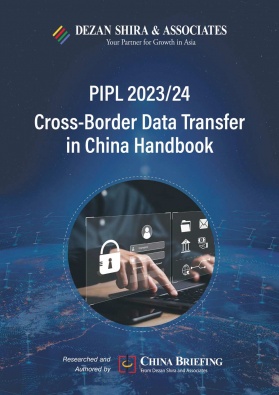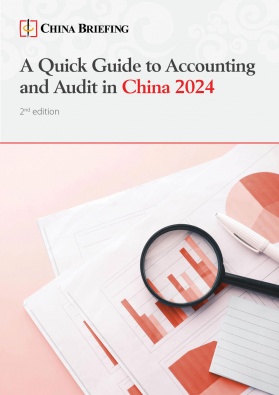China Issues Special Measures to Ease Market Access in the Nansha District, Guangdong
The recently released guidelines for the Nansha District of Guangzhou focus on driving development and innovation, enhancing cross-border cooperation, and improving market access to healthcare and agriculture. key initiatives include establishing a 144-hour visa-free transit policy, the construction of the Guangzhou Nansha Pilot Zone for Agricultural Opening-up and Cooperation, and the promotion of cross-border genetic research collaboration. The new set of guidelines highlight Nansha’s commitment to becoming a leading hub for innovation and advanced industries within the Greater Bay Area.
On January 9, 2024, the National Development and Reform Commission (NDRC), the Ministry of Commerce (MOFCOM), and the State Administration for Market Regulation (SAMR) jointly issued a set of regulations to ease market access in the Nansha District of Guangzhou.
This set of guidelines, titled Guidelines on Easing Market Access in Nansha of Guangzhou and Strengthening Reform of the Regulatory System (the “Guidelines”) presents 15 articles that are specifically designated to boost the financial development and the opening-up of the area while also optimizing key sectors, such as high-end service industries, unmanned smart transportation, advanced marine equipment manufacturing, and green development, among others.
The plan belongs to a series of initiatives, including one targeted at the Guangdong-Macao In-depth Cooperation Zone in Hengqin, which aligns with the Three-Year Action Plan for the whole Greater Bay Area (GBA).
As a whole, these initiatives aim at creating a favorable business environment for cross-border cooperation in the GBA area. It involves the potential relaxation or removal of eligibility criteria, shareholding ratios, and industry access restrictions specifically tailored for investors from Hong Kong and Macao.
In this article, we explore the key points introduced in the Guidelines and assess their impact on Nansha District’s business development. It is important to note that, for the sake of conciseness, we have organized the Guidelines into thematic areas.
Boosting high-tech and innovation
Implementation and application of access standards for unmanned systems of sea, land, and air
The Guidelines represent the government’s effort to facilitate the development and opening up in Nansha District.
To reach such a goal, initiatives to develop standards for unmanned systems of air, sea, and land vehicles in the transportation system have been encouraged. These would be applied in various sectors, including industrial production, logistics, emergency services and urban management, and maritime research.
With such a measure, the goal is to establish an industry incubation base in the GBA that will potentially attract new emerging businesses and startups.
Promoting the accelerated application of the elements of marine scientific and technological innovation
The Guidelines promote the advancement of natural gas hydrate research, development, and commercialization by relying on specialized laboratories and equipment to promote the innovative development of high-end marine equipment manufacturing and enhance capabilities in marine science and technologies.
Collaboration between enterprises, research institutions, and the local government is deemed fundamental to reach such a goal.
Optimizing the market environment for the application of advanced technologies
To establish a conductive market environment for advanced technologies, the proposed measures include the establishment of an international technology center, capitalizing on Nansha Science City.
This center will focus on developing industrial chains for commercial aerospace, biomedicine, and marine science. The emphasis is on the promotion of innovation in business models, capital cooperation, and application scenarios for cutting-edge technologies.
This will potentially create an internationally recognized standard for intelligent equipment, promote cross-border data flow, and draw insights from management systems in Hong Kong, Macao, and international scientific research processes.
Optimizing green development
Accelerating the development of finance with distinctive characteristics
The Guidelines also underscore a commitment to environmental sustainability, encouraging the adoption of green financial standards, certificates, and management systems aligned with international standards.
The Guidelines especially support the Guangzhou Futures Exchange project that will develop products, systems, and innovative technology to establish a futures market that can serve the real economy and green development, along with the development of the Guangdong-Hong Kong-Macao GBA and the Belt and Road Initiative (BRI).
In pursuit of these goals, the Guidelines advocate for policies incentivizing the construction of green buildings, refining evaluation processes, and encouraging financial institutions to support such projects under the principle of market orientation and the rule of law. Additionally, there is a call for the accelerated establishment of a cross-border wealth management and asset management center in the GBA.
Promoting green, low-carbon, and high-quality management
Within the framework of initiatives aimed at fostering a green economy, a key focus is placed on advancing the establishment of the National Carbon Measurement Center (Guangdong). This center assumes a pivotal role in shaping carbon emission tracking systems, contributing significantly to the coordination, standardization, and mutual recognition of carbon emission data among countries participating in the BRI and the European Union.
The development of this center signifies a strategic commitment to international collaboration and standardized approaches in addressing carbon emissions on a global scale.
Facilitating cross-border cooperation
Deepening the innovation of trade in service
As part of the country’s ongoing efforts to develop a hub for technological innovation and advanced industries, Nansha will also implement measures to facilitate trade in services, attracting more professional talents from Hong Kong and Macao. These include:
- The introduction of policies that will further facilitate the recognition of overseas professional qualifications;
- Support for innovation of research and development (R&D) and cross-border leasing; and
- The exemption from pension and unemployment insurance for Hong Kong and Macao residents working in Nansha.
Creating a world-class comprehensive service system for cross-border investment and financing of enterprises
The Guidelines also aim at facilitating the “going global” project of Chinese enterprises through the development of comprehensive service systems.
This will be achieved through the coordinated development of the central and local governments, the linkage between provinces and municipalities, the coordination of resources between Hong Kong and Macao, and the full participation of the market.
It will foster new growth drivers for Hong Kong and Macao and help more enterprises in the GBA to explore overseas market through the two regions.
Easing market access of biomedical and agricultural sectors
To enhance operational efficiency, the Guidelines prioritize the relaxation of market access across various sectors:
- Market access relaxation for the seed industry: This initiative, as part of the opening-up process and the enhancement of cooperation in the GBA, encourage the acceleration of the construction of Guangzhou Nansha Pilot Zone for Agricultural Opening-up and Cooperation. This pilot zone is set to focus on the development of sci-tech innovation and optimization of the seed industry. It includes the optimization of approval services for various seeds, enhancing law enforcement methods for market regulations, and simplifying the procedures for variety examination and registration.
- Market access relaxation for medicines and medical devices: These relaxations aim to incentivize both domestic and foreign biomedical and health enterprises, as well as R&D institutions, to establish factories in Nansha. Notably, the Guidelines propose easing restrictions on the clinical application of restricted cell transplant technologies for cell and gene therapy enterprises after record-filling with health authorities. Additionally, there is specific encouragement for eligible enterprises from Hong Kong and Macao to leverage domestic human genetic resources, thereby advancing research in the medical sector.
- Market access relaxation for other fields: In a bid to further unlock opportunities in the medical sector, this initiative focuses on the expansion of the Guangdong Electronic Prescription Center’s functions. This expansion is designed to enhance the seamless flow of medical services and pharmaceuticals, and relax the online sale limit of exclusive full-nutrition formula foods.
Furthermore, the Guidelines propose the implementation of a 144-hour visa-free transit policy for foreigners and a visa-free policy for cruise travel in Nansha. These measures are aimed at facilitating people’s transit, aligning with the overarching goal of establishing a high-quality international community. Simultaneously, they aim to improve public services linking Hong Kong and Macao, contributing to the smooth exchange of talents and information in the medical research sector.
Improving the regulatory framework
Carrying out a pilot program for admission of inspection and testing and certification results
To successfully implement the pilot program of relaxing market access, it is deemed necessary to build a top-tier market system by removing hidden barriers to market access generated by excessive existing standards, while also endorsing a “mutual recognition of results and passage with one certificate”.
The successful implementation of the mutual recognition principle would facilitate cooperation in the GBA while also cutting business costs and fostering a positive competition among agencies.
Establishing a whole-chain regulatory system for market access
In this developing context, promoting a safe and positive market environment for new emerging businesses in the area is also a top priority. This can be achieved through the optimization of the market regulatory system across all of its aspects, including ex-ante, interim, and ex-post regulations. The optimization of different factors is also emphasized:
- The establishment of a closed-loop management system;
- The achievement of a whole-chain, multi-dimensional, and multi-channel regulation for market access in all fields; and
- The promotion of standardized, healthy, and high-quality development in all fields.
Promoting comprehensive access regulation across departments
The Guidelines also necessitate setting up a more robust cross-departmental access regulation system, particularly for matters involving multiple departments. Such circumstances often entail heightened management complexities and significant latent risks.
Strengthening coordination, aligning leadership, and fostering regional collaboration would cultivate a more precise and efficient business environment, swiftly mitigating diverse potential risks.
Strengthening the access regulation in key fields
The Guidelines call for higher regulation and improved supervision systems within the science and technology sector. This entails (but is not limited to):
- Establishment of global traceability standards;
- Financial monitoring; and
- Ensuring data security and traceability of the electronic prescription center.
Promoting coordinated market regulation
Finally, the Guidelines endorse collaborative efforts among businesses, the government, and civil society.
This concerted approach aims to establish a comprehensive and effective system of checks and balances that will contribute to the shaping of a more fair and transparent business environment.
Why invest in Nansha?
Nansha, nestled in the vibrant city of Guangzhou, has evolved into an important hub within the GBA. Its strategic location, seamlessly connecting the Mainland, Hong Kong, and Macao, coupled with its gateway status for maritime trade, has solidified its position as a central nexus for cross-border activities—an ideal location for entrepreneurs seeking business expansion.
The newly introduced measures are poised to solidify Nansha’s status as a pioneering open economic system, fostering increasing collaboration and connectivity within the GBA area. This initiative aligns with the ongoing development of the Nansha New Area portion of Guangdong (China) Pilot Free Trade Zone established in 2015 that strived to develop legal environment norms aligned with international standards, emphasizing investment and trade facilitation.
Nansha’s strategic initiatives affirm its commitment to becoming a GBA hub for technological innovation and advanced industries. These efforts provide entrepreneurs and investors with convenient access to the entire GBA within a newly created, pioneering, and business-friendly environment.
About Us
China Briefing is written and produced by Dezan Shira & Associates. The practice assists foreign investors into China and has done so since 1992 through offices in Beijing, Tianjin, Dalian, Qingdao, Shanghai, Hangzhou, Ningbo, Suzhou, Guangzhou, Dongguan, Zhongshan, Shenzhen, and Hong Kong. Please contact the firm for assistance in China at china@dezshira.com.
Dezan Shira & Associates also has offices in Vietnam, Indonesia, Singapore, United States, Germany, Italy, India, and Dubai (UAE). We also have partner firms assisting foreign investors in The Philippines, Malaysia, Thailand, Bangladesh.
- Previous Article What to Know Before Quitting Your Job in China – Guide for Foreign Employees
- Next Article Embracing Sustainability: How Businesses Can Contribute to the ‘Beautiful China’ Initiative









